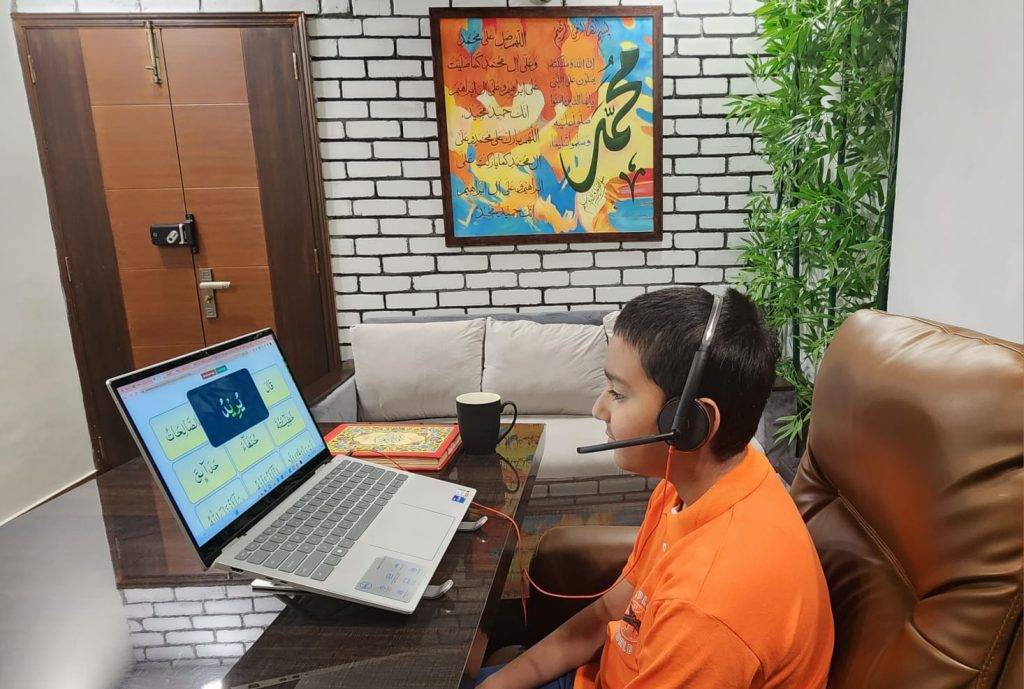How Can I Improve My Focus During Online Classes
Online classes have become a staple in education, providing flexibility and accessibility like never before. However, staying focused during these classes can be a real challenge. Do you find your mind wandering mid-lecture? You’re not alone. Distractions, fatigue, and lack of motivation can make concentrating during online classes difficult. But don’t worry—there are practical solutions to help you improve your focus and make the most out of your online learning experience.

Table of Contents
Toggle1. Introduction
Let’s face it: staying attentive during online classes is often easier said than done. Unlike traditional classrooms, where the environment is structured, online learning leaves you to create your own boundaries. This freedom can quickly turn into procrastination. But here’s the good news—you can train yourself to maintain focus with the right strategies.
How Can I Improve My Focus During Online Classes are some details below
Let’s explore the challenges and actionable solutions to help you thrive in your online education journey.
2. Understand the Common Distractions
Before we dive into solutions, it’s essential to understand what’s pulling your attention away. Are you:
- Constantly checking your phone?
- Distracted by background noise?
- Struggling with fatigue or lack of interest?
Identifying these distractions is the first step toward tackling them effectively.
3. Set Up a Dedicated Workspace
Think of your workspace as your personal learning hub. Just as a chef needs a clean kitchen to cook efficiently, you need a tidy, organized desk to focus.
- Choose a quiet location where you can minimize interruptions.
- Ensure good lighting and comfortable seating.
- Keep your workspace free of clutter to avoid visual distractions.
By having a consistent study area, you’re signaling your brain that it’s time to work.
4. Establish a Routine and Stick to It
Did you know that our brains love routines? Having a consistent schedule helps your mind get into “learning mode” more quickly.
- Wake up at the same time daily and dress as if attending an in-person class.
- Allocate specific time blocks for studying, assignments, and relaxation.
- Stick to your routine even on weekends to maintain consistency.
5. Use Technology Wisely
Technology can be your best friend—or your biggest distraction. The key is to use it intentionally.
- Turn off notifications on your phone and computer during class.
- Use apps like Focus@Will or Forest to help you stay on track.
- Make the most of learning tools like digital planners, flashcard apps, and collaborative platforms.
6. Take Scheduled Breaks
Trying to focus for hours on end can be counterproductive. Your brain, like a muscle, needs rest to function effectively.
- Follow the Pomodoro Technique: Work for 25 minutes and take a 5-minute break.
- Use breaks to stretch, grab a snack, or simply rest your eyes.
Breaks recharge your mind and enhance long-term focus.
7. Adopt Active Listening Techniques
Active listening is more than just hearing words; it’s about truly engaging with the content.
- Take notes in your own words during lectures.
- Ask questions when something isn’t clear.
- Visualize or summarize concepts to enhance understanding.
By staying mentally engaged, you’ll retain information better.
8. Stay Physically Active
It might surprise you, but physical activity plays a crucial role in cognitive performance.
- Incorporate light exercises like yoga or walking into your daily routine.
- Take quick stretches between classes to boost circulation and reduce fatigue.
Regular exercise can sharpen your mind and improve overall focus.
9. Practice Mindfulness and Meditation
Meditation is like a gym for your mind—it strengthens your ability to concentrate.
- Spend 5–10 minutes daily practicing mindfulness.
- Use guided meditation apps like Headspace or Calm to get started.
- Focus on your breath to center yourself during moments of distraction.
Mindfulness helps you stay present, even in the face of challenges.
10. Stay Organized with a Planner
An organized mind is a focused mind. Using a planner can simplify your online learning experience.
- Write down deadlines, assignments, and exam dates.
- Break larger tasks into smaller, manageable chunks.
- Regularly review your planner to stay on track.
By staying organized, you’ll reduce stress and improve focus.
11. Minimize Multitasking
Trying to juggle too many tasks at once can dilute your attention.
- Focus on one task at a time and complete it before moving on.
- Use techniques like time-blocking to allocate undistracted time for each task.
- Keep non-essential tabs or apps closed during study sessions.
Single-tasking improves both efficiency and learning outcomes.
12. Stay Hydrated and Eat Healthy
Your brain needs fuel to function at its best.
- Drink plenty of water throughout the day to stay hydrated.
- Avoid heavy, sugary snacks that can cause energy crashes.
- Opt for brain-friendly foods like nuts, berries, and leafy greens.
A well-nourished body supports a focused mind.
13. Seek Support When Needed
Sometimes, despite your best efforts, staying focused can be tough. Don’t hesitate to ask for help.
- Talk to your instructors if you’re struggling with the pace or format of the class.
- Reach out to classmates for study groups or discussions.
- Consider professional support, such as a counselor or coach, if needed.
Remember, seeking help is a sign of strength, not weakness.
14. Conclusion
How Can I Improve My Focus During Online Classes: Improving focus during online classes isn’t about perfection; it’s about progress. By setting up a conducive environment, establishing routines, and practicing mindfulness, you’ll equip yourself to stay attentive and achieve your academic goals. Consistency is key, so take small steps daily, and you’ll see the difference over time.
15. FAQs
1. Why is it hard to focus during online classes?
Distractions, lack of structure, and excessive screen time often contribute to reduced focus in online settings.
2. How does a dedicated workspace improve focus?
A dedicated workspace minimizes distractions and signals your brain to concentrate on the task at hand.
3. Are there specific apps to help improve focus?
Yes, apps like Focus@Will, Forest, and Headspace can help enhance focus and mindfulness.
4. Can physical activity really improve focus?
Absolutely! Regular exercise improves blood flow to the brain, enhancing cognitive function and concentration.
5. How long does it take to develop better focus habits?
It varies by individual, but consistency in applying focus strategies can yield noticeable results within a few weeks.
Half Week Free Trial Classes
Upon completion of your course, you will receive a complimentary certificate. What are you waiting for, then?
Enroll in our class now for a free trial.
Read More: Online Quran Classes for Kids: Transforming Islamic Learning



